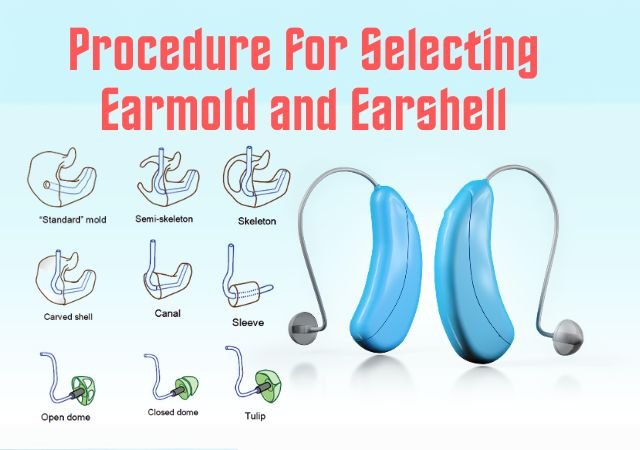University of Iowa Doctor of Audiology (AuD) Programs: Audiology is an essential branch of science that deals with hearing and balance disorders, which provides diagnosis and treatment for hearing disorders. As an aging society, the need for well-credentialed audiologists is on the rise. The University of Iowa’s Doctor of Audiology (AuD) program is one of the leading programs in the nation, known for its challenging academic curriculum, its cutting-edge equipment and facilities, and its high expectations in clinical training.

Prerequisites for The Doctor of Audiology Program
Educational Requirements
To apply for the Doctor of Audiology (AuD) program at the University of Iowa, applicants must hold a bachelor’s degree from an accredited institution. While a degree in communication sciences and disorders is advantageous, it is not mandatory.
Required Coursework
Prospective students should have completed coursework in the following areas:
- Biology
- Physical Sciences (Physics or Chemistry)
- Statistics
- Behavioral Sciences
These courses ensure a solid foundation in the sciences necessary for advanced audiology studies.
Recommended Experience
There is no official prerequisite, but clinical experience in audiology or a closely related field can enhance an application. Volunteering, internships, or work in clinical settings can also show a candidate’s dedication and experience.
Additional Requirements for International Students
English Language Proficiency
The foreign students should have proficiency in English. Acceptable tests are TOEFL or IELTS, and the minimum score requirement is determined by the university to verify that applicants can fully engage in the program.
Visa and Immigration Documentation
All international students must obtain a student visa to study in the United States. UI assistance is available via the International Student and Scholar Services (ISSS).
Financial Proof and Sponsorship
Applicants from abroad must provide evidence of financial capability to cover tuition and living expenses for the duration of the program. This proof is critical for visa approval and enrollment.
Doctor of Audiology Program Fee
Tuition Costs
The tuition for the Doctor of Audiology program at the University of Iowa varies for in-state and out-of-state students. On average, the annual tuition ranges from $25,000 to $45,000.
Additional Fees
Students should also budget for additional fees, including:
- Lab fees
- Clinic fees
- Books and materials
- Health insurance
Financial Aid and Scholarships
There are several financial aid programs available through the University of Iowa, including scholarships, grants, and assistantships. Apply Early. Students are encouraged to apply early in order to receive the best financial aid packages.
Doctor of Audiology Curriculum
Core Courses
The AuD curriculum includes essential courses such as:
- Hearing Science
- Audiologic Assessment
- Hearing Disorders
- Aural Rehabilitation
Clinical Practicum
Clinical is the program’s heart and soul. Throughout the course, students engage in Clinical Practicum, where they develop real-world experience with under the guidance of practising audiologists.
Research Opportunities
Students often have the chance to take part in research that is pushing the field of audiology. Research Faculty for students, research projects, or assistantships are all options.
Elective Courses
The program also offers elective courses, allowing students to tailor their education to their interests and career goals.
Doctor of Audiology Program Accreditation and Certification
Accreditation Bodies
The Doctor of Audiology program at the University of Iowa is accredited by the Council on Academic Accreditation in Audiology and Speech-Language Pathology (CAA).
Certification Process
Graduates are eligible to apply for certification through the American Speech-Language-Hearing Association (ASHA). Certification is essential for professional practice in many states.
Importance of Accreditation
Accreditation ensures the program meets high educational standards, preparing students effectively for professional practice.
The standards for the CCC-A are detailed in the article linked below, along with the implementation procedures from the Council for Clinical Certification in Audiology and Speech-Language Pathology (CFCC).
Doctor of Audiology Notes
Click on the link below for detailed notes relating to each year of the Doctor of Audiology course here at baslpcourse.com. Whether you’re in your 1st, 2nd, 3rd, or final year, our tailored notes include significant topics to help aid you in your studies. Get access to critical audiologist materials that will allow you to master your audiology studies.
Doctor of Audiology Salary
Average Salary
Audiologists in this country earn on average $80,000 a year. But that figure can fluctuate drastically depending on region, experience, and type of work environment.
Factors Influencing Salary
Other conditions, such as region, experience, and type of employment (private practice, hospitals, schools), can have a substantial effect on the salary of an audiologist.
Salary Comparison by Region
Wages in city areas and places with a high cost of living are typically higher. On the other hand, rural areas may offer lower wages, but they can provide other amenities, such as lower prices of living.
University of Iowa Acceptance Rate
General Acceptance Rate
The admission rate for the University of Iowa AuD program is competitive, and it tends to hover around 40-45%. This is actually a testament to the high standard and the few spots that are available every year.
Comparison with Other Universities
Acceptance and fees Compared to other audiology programs in the US, the University of Iowa is very much a mid-tier school, particularly with its acceptance rate and cost, which isn’t too exclusive or too easy to get into, which is a good thing to ensure quality.
University of Iowa Acceptance Rate for International Students
Specific Statistics
It is a little lower for international students, which shows the added struggles and standards that international applicants must contend with.
Admission Challenges for International Students
International applicants have to pay in USD and may encounter language issues, visa issues, or budgeting troubles. But there is help to sidestep those challenges by way of the University of Iowa.
Overall College Review
Campus Facilities
The University of Iowa offers outstanding facilities, including state-of-the-art classrooms and laboratories as well as clinical areas.
Student Support Services
The university provides a number of support services, such as advising, career counseling, and mental health resources, to help students reach their full potential.
Community and Culture
The University of Iowa is committed to creating an environment where everyone is welcomed and treated respectfully. Boys and girls from many different walks of life find a place to grow academically and socially.
Conclusion
The Doctor of Audiology program at the University of Iowa is a complete education with strong clinical experiences and receives more applications for aspiring audiologists than any other program. The well-structured coursework, high-quality facilities, and supportive community help students excel in their careers as audiologists. Wherever you’re from—across the state, around the country, or from around the world, the University of Iowa offers everything you need to succeed in this important health care profession.
FAQs about University of Iowa Doctor of Audiology (AuD) Programs
The AuD program at the University of Iowa has a small class size, with typically 10-15 students per class, enabling individual attention and mentoring.
The university is associated with several local clinics, hospitals, and private practices, affording students a wide range of clinical placement options.
Yes, students are able to work with other healthcare programs, to engage in interdisciplinary research and practice, and we are able to offer a more diverse experience than other programs as a result.
Financial support may be offered via scholarships, grants, and as teaching or research assistants. These opportunities aren’t always simple to navigate, and the financial aid office can help students take advantage of them.
The majority of AuD graduates from the University of Iowa are employed in the field, and most graduates are employed in a clinical, hospital, school, or private practice setting within the first year after graduation.
References:
- AuD Coursework Outline for ASHA Certification
- Apply for Certification in Audiology
- University of Iowa – Communication Sciences and Disorder








0 Comments